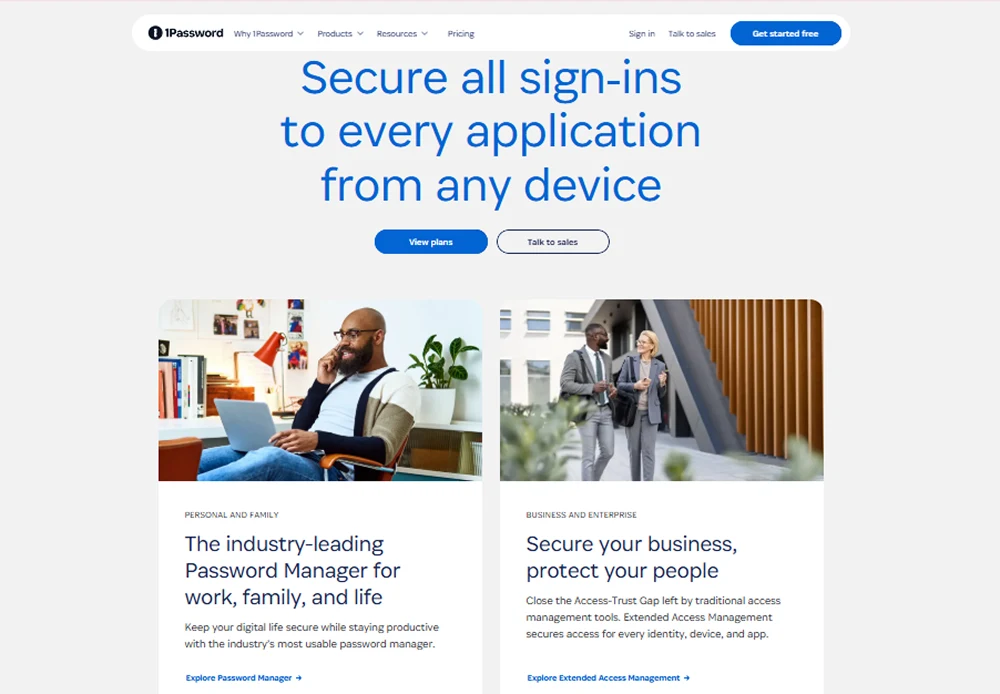1Password Overview & 2026 Industry Position
In 2026, 1Password stands out as more than just a password manager. It’s a comprehensive security platform tailored for individuals, families, teams, and enterprises. With the growing emphasis on cybersecurity, identity protection, and convenience, 1Password users benefit from seamless cross-device syncing, strong encryption protocols, and innovative features like passkey support and AI-assisted form filling. The platform bridges usability and enterprise-grade security, making it one of the most trusted privacy-first tools available today. As zero-trust architecture becomes the gold standard, 1Password is positioned as a core layer in both personal and business tech stacks.
From Launch to 2026: 1Password’s Journey
1Password was launched in 2005 by AgileBits, born out of the need for a simple yet secure way to manage digital credentials. Originally a Mac-only product, it quickly expanded to include support for Windows, mobile platforms, and ultimately browser extensions.
- 2005 – Initial release for Mac
- 2012 – Support for Windows and iOS launched
- 2017 – Team and business plans introduced
- 2021 – 1Password 8 launched with a redesigned interface
- 2023 – Support for passkeys and biometric unlock added
- 2025 – Fully integrated AI-smart autofill and password hygiene scoring
2026 Strategy Thesis: 1Password aims to democratize simple yet powerful digital security by combining automation, intelligent suggestions, and enterprise integrations — all under one encrypted vault.

1Password Key Features
1Password shines through its thoughtful blend of UX flexibility and security mechanisms. Here are the standout features powering its 2025 offering:
- AI Autofill Assistant: Recognizes and fills forms with precision based on context, not just labels.
- Watchtower Dashboard: Alerts users to weak, reused, or compromised credentials via real-time scoring.
- Secure Vault Sharing: Enterprise teams can delegate access by role while retaining audit trails.
- Passkey Support: Built-in passkey credential manager reduces reliance on passwords entirely.
- Offline and Travel Mode: Lets users control which credentials appear when online or crossing borders.
- Dark Web Monitoring: Notifies of leaks tied to specific logins or email addresses.
Workflow & UX
Whether you’re a solo user or managing thousands of credentials for a business, 1Password workflows remain delightfully fluid. The interface adapts seamlessly across mobile, browser, and desktop apps. Biometric unlock, drag-and-drop organization, and smart suggestions reduce friction dramatically. A recent UX update prioritizes fast navigation between vaults, with role-based filters for team users.
Pro Tip: Use 1Password’s “Tags” to cluster logins by client, department, or urgency — perfect for cross-functional teams and freelancers managing multiple workflows.
1Password Pricing Analysis & Value Metrics
As of July 2026, 1Password’s pricing remains competitive — particularly given its passkey leadership and enterprise capabilities. Here’s a breakdown:
| Plan | Price/mo (USD) | Includes |
|---|---|---|
| Individual | $2.99 | 1 user, unlimited devices, vaults, AI autofill |
| Families | $4.99 | Up to 5 users, shared vaults, admin controls |
| Teams | $7.99 | Per user, vault sharing, privacy zones, reporting |
| Business | $11.99 | SSO, SCIM, workflow automation, priority support |
Value assessment: Ideal for forward-looking users and security-conscious companies — particularly where built-in passkey support reduces enterprise costs downstream.
Competitive Landscape
The password management space remains crowded, but 1Password differentiates well:
| Brand | Strength | Limitations |
|---|---|---|
| 1Password | AI tools, passkey, UX | Higher cost for large orgs |
| Dashlane | VPN included | Less robust autofill |
| Bitwarden | Open source, free tier | Clunky interface at scale |
Common Use Cases
- Freelancers: Manage dozens of logins and secure documents per project with tagging & offline access.
- Families: Organize shared accounts like banking, subscriptions, and streaming in one unified vault.
- Enterprises: SSO, shared team vaults, activity logs, and SCIM provisioning for onboarding/offboarding.
- IT Teams: Rapid credential deployment, secure notes, and Watchtower audit tools.
Integrations
1Password integrates directly with tools like:
- Okta and Azure AD for identity orchestration
- Slack for secure credential sharing via chat app
- GitHub, BitBucket — store API keys and secrets securely
- Sprint, ClickUp, and Jira integrations via CLI access
These integrations allow for smoother workflows and eliminate switching costs for engineering, HR, and operations teams.
Pros & Cons
- Pro: Industry-best autofill logic with contextual awareness
- Pro: Seamless cross-platform vault syncing
- Pro: Secure document storage for IDs, recovery codes
- Con: Slightly higher price point for startups
- Con: Requires deeper training at the enterprise level
Final Thoughts
1Password in 2026 offers advanced, trustworthy protection without sacrificing usability. If you’re ready to consolidate tools for vault storage, autofill, passkey access, and dark web alerts into one seamless platform — it’s a top-tier choice. Ideal for individuals and companies ready to embrace security as a workflow enhancer, not a blocker.
1Password Q & A
Yes. 1Password offers cross-platform availability, better AI autofill, shared vaults, and proactive data breach alerts — features not available in most native keychains.
Yes, with full passkey support and biometric unlock, users can log in to many services without needing a password at all.
Absolutely. 1Password uses end-to-end encryption, offers role-based access, audit logs, and has passed multiple independent security audits.
Yes, the platform allows for secure document storage — such as scanned IDs, contracts, and 2FA backups — in encrypted, file-supported vaults.
Through its Watchtower feature, which scans compromised databases and alerts you in your dashboard if any credentials are involved.

